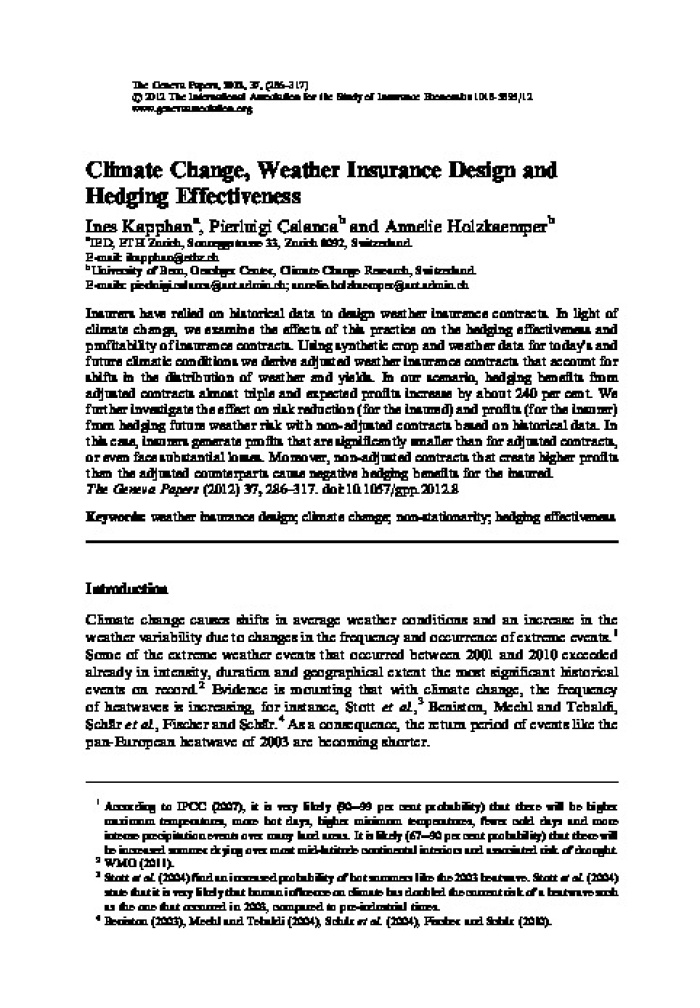Climate Change, Weather Insurance Design and Hedging Effectiveness

Insurers have relied on historical data to design weather insurance contracts. In light of climate change, we examine the effects of this practice on the hedging effectiveness and profitability of insurance contracts. Using synthetic crop and weather data for today’s and future climatic conditions we derive adjusted weather insurance contracts that account for shifts in the distribution of weather and yields. In our scenario, hedging benefits from adjusted contracts almost triple and expected profits increase by about 240 per cent. We further investigate the effect on risk reduction (for the insured) and profits (for the insurer) from hedging future weather risk with non-adjusted contracts based on historical data. In this case, insurers generate profits that are significantly smaller than for adjusted contracts, or even face substantial losses. Moreover, non-adjusted contracts that create higher profits than the adjusted counterparts cause negative hedging benefits for the insured.